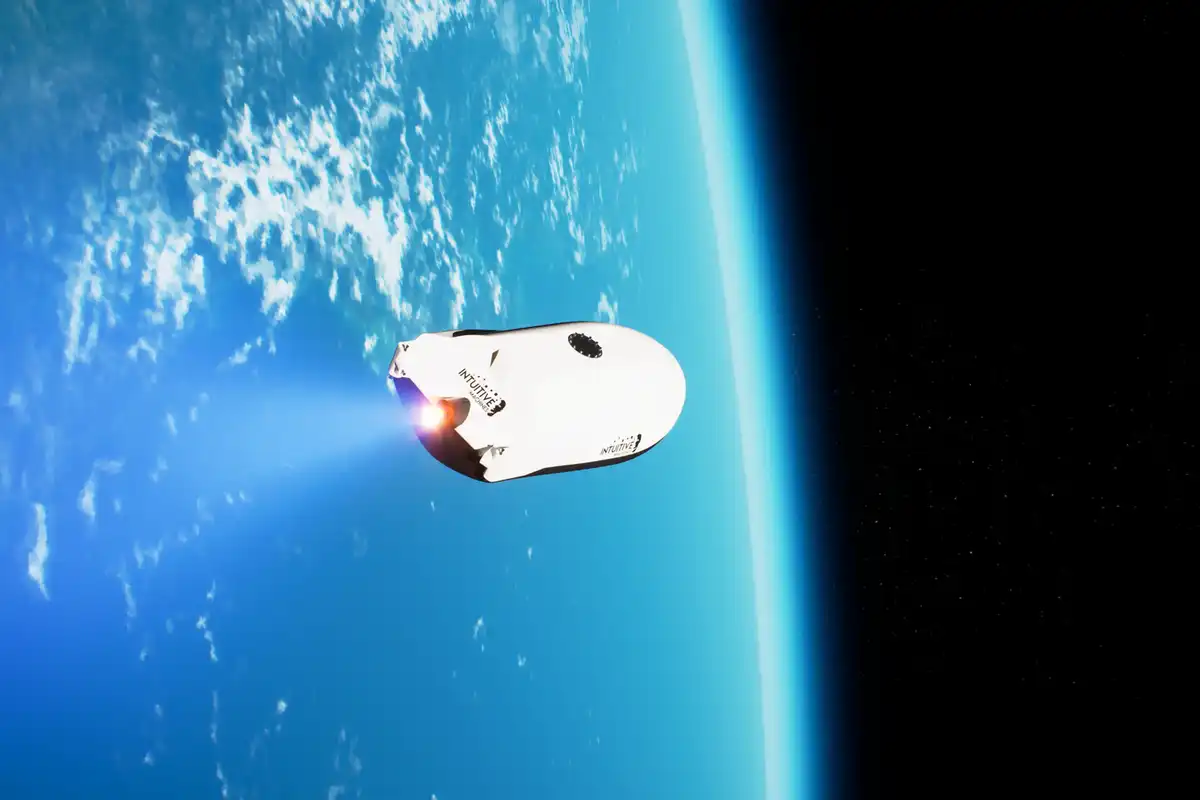Houston space tech co. lands millions and more innovation news to know
Trending News
Editor's note: It's time to recap the top innovation news for the first half of May 2025. Our five most-read stories from May 1-15 include updates from Intuitive Machines and The Ion. Plus, driverless trucks hit the road from Houston to Dallas. Get all of the details below.
1. Houston space tech leader lands up to $10 million for Earth re-entry vehicle and lab

The Texas Space Commission has selected Houston's Intuitive Machines to develop a vehicle that will return lunar samples to Earth, along with an orbital fabrication lab. Photo courtesy Intuitive Machines.
Houston-based space technology, infrastructure, and services company Intuitive Machines has been awarded a state grant of up to $10 million to help develop an Earth re-entry vehicle and in-space biomanufacturing lab. The Texas Space Commission approved the grant, which is coming from the state’s Space Exploration and Research Fund. Intuitive Machines says the money will support its “critical risk-reduction platform” for returning lunar samples to Earth. The funding will go toward an early 12-month phase of the project. Continue reading.
2. 9 can't-miss Houston business and innovation events for May

Don't miss these May events — from an investor activation series to a crawfish cook-off. Photo courtesy Greentown Labs.
There's a lot to learn this month at events around Houston. Hear from AI and energy experts or gain insights into how to tap into funding at informative panels or sessions. Continue reading.
3. Autonomous truck company rolls out driverless Houston-Dallas route

Aurora began regular driverless deliveries between Houston and Dallas on April 27. Photo courtesy Aurora.
Houston is helping drive the evolution of self-driving freight trucks. In October, Aurora opened a more than 90,000-square-foot terminal at a Fallbrook Drive logistics hub in northwest Houston to support the launch of its first “lane” for driverless trucks—a Houston-to-Dallas route on the Interstate 45 corridor. Aurora opened its Dallas-area terminal in April and the company began regular driverless customer deliveries between the two Texas cities on April 27. Continue reading.
4. Texas-based 'DoorDash for laundry' startup tumbles into Houston market

The service has been a smash success in Austin. Courtesy photo
Laundry may seem like an endless task that piles up, but a new service offers a solution to overwhelmed Houston families. NoScrubs, an Austin-based home laundry pickup service has just expanded to Houston. Described by the company as "DoorDash — but for laundry," they wash customer's clothes at local laundromats and return them the same day, folded and ready to be put away. The service took off like gangbusters in Austin, making an expansion to the state's largest city an obvious choice. Continue reading.
5. New energy innovation and coworking spaces open at the Ion

The Oxy Innovation Center has opened at the Ion and Industrious' coworking space launches soon. Photo courtesy of The Ion
Houston-based Occidental officially opened its new Oxy Innovation Center with a ribbon cutting at the Ion. The opening reflects Oxy and the Ion's "shared commitment to advancing technology and accelerating a lower-carbon future," according to an announcement from the Ion. Oxy, which was named a corporate partner of the Ion in 2023, now has nearly 6,500 square feet on the fourth floor of the Ion. Rice University and the Rice Real Estate Company announced the lease of the additional space last year, along with agreements with Fathom Fund and Activate. Continue reading.


 Apple doubles down on Houston with new production facility, training centerPhoto courtesy Apple.
Apple doubles down on Houston with new production facility, training centerPhoto courtesy Apple.





